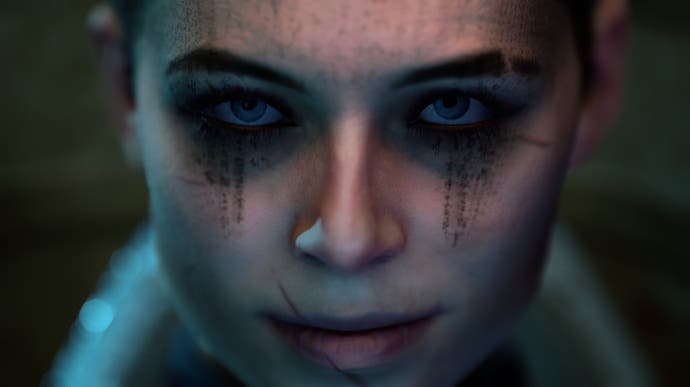What it's like to develop a game for Xbox Series X - according to the creator of Chorus
"We always find ways to find the limitations."
Microsoft has just announced a raft of third-party Xbox Series X games, and among them is Chorus, a new fast-paced space shooter aerial combat game from German studio FishLabs. FishLabs has been working on Chorus since 2017, and it's now getting the game ready to launch across the current and next-generation of consoles as well as PC and Stadia at some point early 2021. According to Microsoft, Chorus is "fully engineered to take advantage of Xbox Series X's powerful hardware". But what does that mean, exactly?
Ahead of Microsoft's special episode of Inside Xbox, in which Chorus was announced, we had the chance to speak with Johannes Kuhlmann, head of core technology at FishLabs to find out what it's like to develop a game for Xbox Series X - and what he makes of the various claims Microsoft has made about its beefy next-gen console.
Chorus is said to be taking advantage of some specific features of the Xbox Series X. Can you talk a bit about what those are exactly?
Johannes Kuhlmann: It's a multi-platform title. So it's not exclusive to Xbox Series X, but it's definitely one of the platforms we are now focusing on. And of course, with being next generation, there's lots of stuff to take advantage of. One example is, of course, that we have way more power available now. Looking at the CPU side of things, we are looking into having the world more alive, simulating more physics, having everything a bit more dynamic.
So just one example, in previous games, we had debris fields that felt kind of static, because these pieces of debris, you might maybe run into them and bump off of them, or maybe they wouldn't have any collision at all. But what we are doing now is when you run into something, it actually starts moving and kind of floating away, which is I suppose what you would expect in space. So it feels like you're actually affecting the environment. And it feels a lot more dynamic that way.
And another example is with all this fighting going on, there's also lots of destruction and explosions. And we are going to be able to ramp up effects on that. We do have large ships you can destroy already that fall apart. And of course, the smaller ships you fight against also can be destroyed. And one thing we are now working on with the help of Xbox Series X is procedural destruction, so actual objects are broken apart at runtime, exactly where you shoot them. And of course, that feels like you're actually having an impact on the environment. And I feel that is super awesome, if the stuff actually breaks were I shot at it.
I'm just trying to get a sense of whether there are any Xbox Series X exclusive features that make use of the hardware in any unique way, that you're not going to do on other platforms?
Johannes Kuhlmann: It's definitely a high-end feature. Definitely a generation nine feature. We don't have any Xbox Series X unique features.
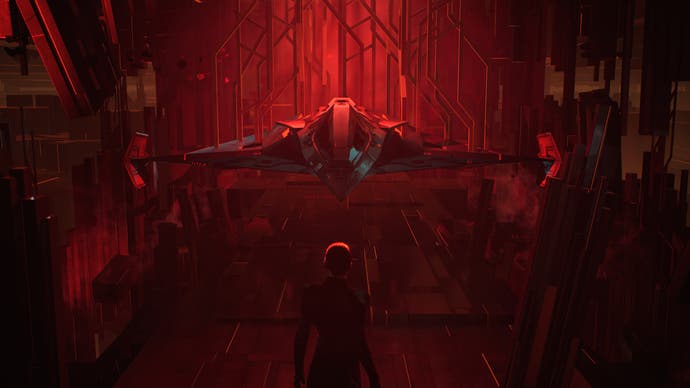
Since Chorus is a cross-gen title, how do you make it meaningfully different on next-gen when you have to cater to the lowest common denominator console, like a base Xbox One?
Johannes Kuhlmann: Of course, that's kind of a tricky situation. We want everybody to have more or less the same experience, to play the same story in the end, so that you, if you play the Xbox One game, it's also going to be awesome. But we are optimising for Xbox Series X. The base story and gameplay is going to be the same. But as I described with the CPU, how we are taking advantage of the CPU is setting the Xbox Series X version apart.
And there are other things like for example, if we look at the power we also get from the GPU, we can ramp up resolution and framerate on Xbox Series X. So the core is still the same game, but we are trying to make the experience on next-gen, on generation nine, a whole lot more dynamic and of course, also improve the sense of immersion because you have a bigger effect on the world.
What is it like to develop for the Xbox Series X compared with the Xbox One? Are things easier for you now? Is it throwing up interesting challenges?
Johannes Kuhlmann: I've got to say, the transition from coming from Xbox One to Xbox Series X was straightforward. We felt right at home on the new devkit. There weren't any particular challenges.
You have way more freedom. You don't have to worry about the framerate as much. You can instead crank it up to a higher framerate. In the end it's easier to develop for Xbox Series X than any other console.
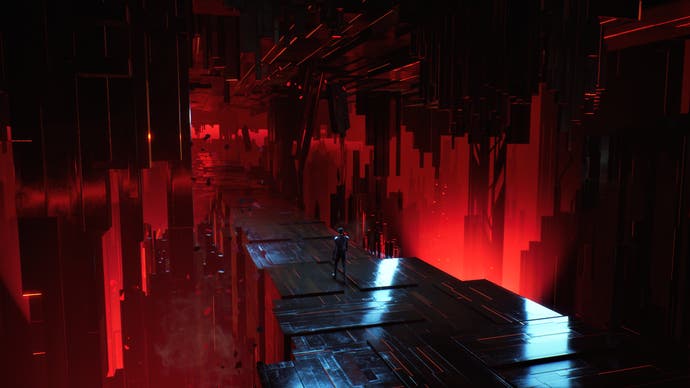
How would you describe the differences in making the game for Xbox Series X versus PlayStation 5?
Johannes Kuhlmann: I can't really go into details compared to PS5. We are of course looking into that as well. But for now, we've been focusing on the Xbox Series X.
Do you feel like the Xbox Series X essentially ends the sub-60 frames per second video game? Or do you still see a case for maybe having a game run at 30 frames per second on this?
Johannes Kuhlmann: With all platforms, it's always a balance between quality and performance in the end. I'm hoping we only see 60FPS games now. But I don't know what other developers are going to do, if they're gonna, like, I don't know, render everything twice, or crank up the detail to insane amounts and then have 30FPS or can't hold a stable framerate again.
We are targeting a 4K resolution as well as 60FPS on Xbox Series X. Those are our targets, and that's what we're aiming for. And of course, with the increased resolution it's just gonna look better and you're gonna see more detail. And with the increased framerate, especially because we have such a fast-paced game, it's just gonna feel better, you're gonna be more able to chase the enemies around and you're going to get better feedback from when you press the button and the results show up on screen. So I feel like it's going to be a lot better by actually making use of all the power that's available.
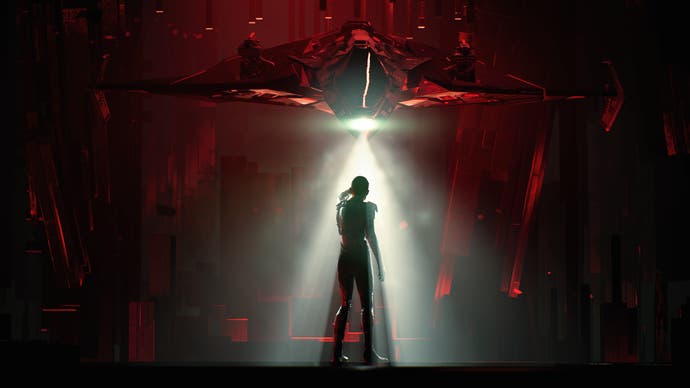
So where do you stand on the teraflop debate? Do you consider teraflops to be the single most important thing when it comes to the power of a console as a third-party developer? Or is there more to the debate than that?
Johannes Kuhlmann: There's definitely more to the debate than that. I can't really speak on any number differences, but what I know is we do have the game running and it looks very promising already. But what we always see with any console generation is we first have to learn how to handle the hardware, how to handle the software, and how to make the best use of it.
If you have a difference in teraflops, but then have an operating system or firmware that doesn't allow you to take advantage of this, then it's not going to be of much use. So there's definitely more to the debate. It definitely depends on how you can make use of hardware and software.
As a third-party developer, what were you hoping for from the next-generation of consoles? And specifically from the Xbox Series X?
Johannes Kuhlmann: I do feel happy because I pretty much got all I wanted. One thing as a developer I really like to see is we have a continuation of how I develop for a platform. If it's a whole new architecture, it's going to be more difficult for me to bring this game to the new platform. But with the Xbox Series X, we felt right at home. It's like a continuation of what we have seen before, in terms of how we develop for it. So that's one thing I was wishing for.
The other thing is lots of performance with it. I can actually go and say, we are targeting 4K, we are targeting 60FPS, and I think I also got that as well. And maybe the last little thing I was also hoping for was ray tracing support in hardware. And as far as I know, I got that as well.

Microsoft has talked about Xbox Series X having instant loading. Can you do anything with that, that actually changes gameplay or game mechanics?
Johannes Kuhlmann: Chorus has a quite a few open world elements. You can freely roam around and explore different locations. We do load in stuff in the background. We do still have a few loading screens in place. I'm hoping with the SSD read speeds, we can either get rid of them or some of them completely, or we can at least minimise the time spent on loading screens.
So while for us it's not like changing the game completely, I feel it's gonna improve how the game can be enjoyed and how much time the player at the end spends waiting until a new location can be explored. It's gonna feel like you can roam more freely with faster loading times in this case.
Is this tech eradicating texture pop-in? For example, trees appearing in the distance as you move closer to them?
Johannes Kuhlmann: Yeah, exactly. One part of that is performance of the GPU - if you can actually render all the trees that are far in the back. But yeah, popping in should definitely be reduced, because we can stream in whatever is in the distance faster, and it's just going to be ready earlier, so that it's not popping in while you can already see it. And on the other hand, we do have more RAM available now so we can just keep more stuff in memory as well in case we might need it. So we can start streaming in the trees in the distance - not in our case, not trees - but start streaming in parts of the space station earlier when you're getting closer, than compared to if we were limited in RAM, because you would have to manage what we are using more.
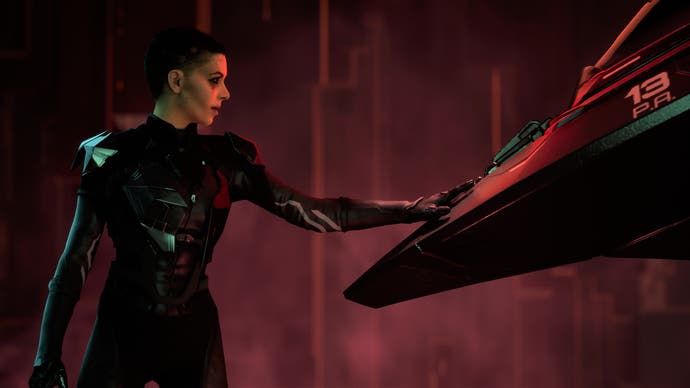
Microsoft has said the power of Xbox Series X means there are no technological barriers to developers realising their vision. Is that overstating things? Or is this a genuinely significant moment for console tech?
Johannes Kuhlmann: We as developers, we always find ways to find the limitations. So be it like increasing texture sizes, for example, or be it like, we want a new rendering approach - we want everything ray traced of course. This is what I mean when I say we also have to find a balance between quality and details as well as framerate.
What we see, just having the game running on the new Xbox, is we have a lot of room. We do have massive potential, and we can say we are targeting 4K 60FPS. We can do that. But I think in the end, someone is going to come up with some ideas that will not work at 60FPS.
I know it can be incredibly challenging making a game for consoles that aren't out yet. How's it been for you?
Johannes Kuhlmann: I feel that we've always been in kind of good position because we already target multiple platforms. Especially if you also target PC, you're kind of already thinking about how can I scale this because I want to support low end PCs, I want to support high end PCs. Working on Xbox Series X was convenient because not so much is being changed, at least hardware wise anymore. So while everything is still evolving, and we have to figure out what are the requirements, it's actually been a very smooth ride.
